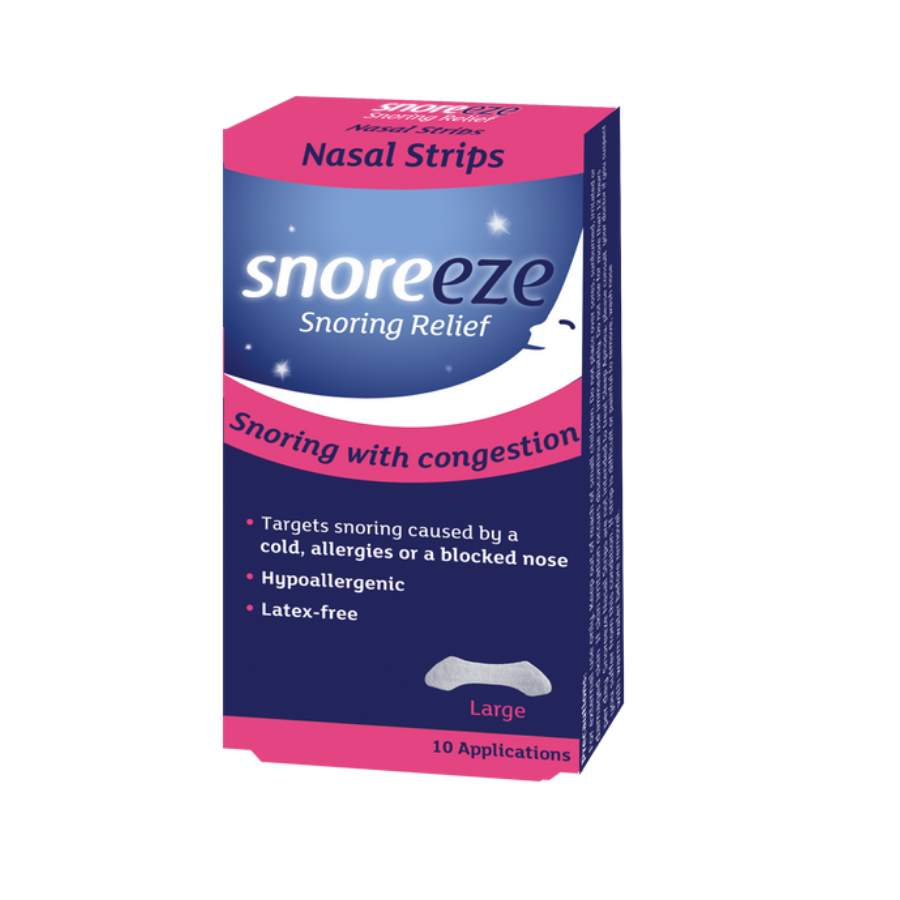Snoring
2 products
Showing 1 - 2 of 2 products
Snoring - Anti Snoring, Stop Snoring
Do you or your partner snore? If so, you're not alone. In fact, an estimated 45% of adults snore occasionally, while 25% are habitual snorers.
There are a number of things that can cause snoring, from sleeping on your back to nasal congestion. But whatever the cause, it can be a real nuisance — both for you and for your bed partner.
If you're looking for a way to stop snoring, there are a few things you can try. Anti-snoring devices like nasal strips and rings can help keep your airway clear and reduce snoring. And making some simple lifestyle changes — like losing weight or sleeping on your side — can also make a big difference.
Does the snoring ring work?
If you or your partner snores, you know how frustrating it can be to get a good night's sleep. Snoring is caused by a number of factors, including sleep position, nasal congestion, and alcohol consumption. While there are a number of ways to try to stop snoring, such as sleeping on your side or avoiding alcohol before bedtime, many people find that these methods are not effective. The snoring ring is a device that is worn on the finger during sleep. It is said to work by applying pressure to points on the hand that are connected to the sinuses, allowing air to flow more easily through the nose and reducing snoring. There is some scientific evidence to support this claim, but the jury is still out on whether or not the snoring ring is an effective solution for everyone. If you're struggling to stop snoring, it may be worth giving the snoring ring a try.
How do nasal strips help with snoring?
Nasal strips are a type of external nasal dilator, which means they help to open up the nostrils. This can be helpful for people who snore, because snoring is often caused by a restricted airway. When the airway is narrowed, it causes the soft tissue in the throat to vibrate, resulting in snoring. By opening up the nostrils, nasal strips can help to reduce or eliminate snoring. In addition, nasal strips can also help to improve airflow and reduce congestion. This can be beneficial for people who have difficulty breathing through their nose, or who suffer from allergies or sinus infections. By improving airflow, nasal strips can help to make breathing easier and reduce symptoms such as snoring, congestion, and difficulty breathing.
Snoring is often associated with a sleep disorder called obstructive sleep apnea (OSA). Not all snorers have OSA, but if snoring is accompanied by any of the following symptoms, it may be an indication to see a doctor for further evaluation for OSA:
- Witnessed breathing pauses during sleep
- Excessive daytime sleepiness
- Difficulty concentrating
- Morning headaches
- Sore throat upon awakening
- Restless sleep
- Gasping or choking at night
- High blood pressure
- Chest pain at night
- Your snoring is so loud it's disrupting your partner's sleep
- In children, poor attention span, behavioral issues or poor performance in school
OSA often is characterized by loud snoring followed by periods of silence when breathing stops or nearly stops. Eventually, this reduction or pause in breathing may signal you to wake up, and you may awaken with a loud snort or gasping sound.
You may sleep lightly due to disrupted sleep. This pattern of breathing pauses may be repeated many times during the night.
People with obstructive sleep apnea usually experience periods when breathing slows or stops at least five times during every hour of sleep.





